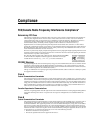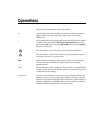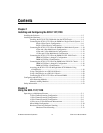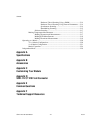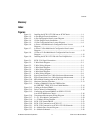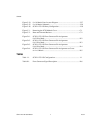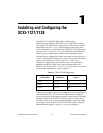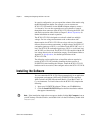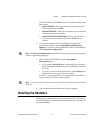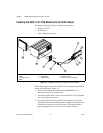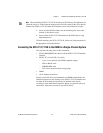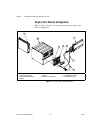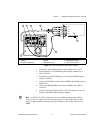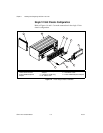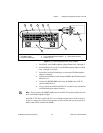
Chapter 1 Installing and Configuring the SCXI-1127/1128
SCXI-1127/1128 User Manual 1-2 ni.com
In a matrix configuration, you can expand the columns of the matrix using
the HVAB-backplane adapter. For example, you can connect two
SCXI-1127/1128 modules via the HVAB-backplane adapter to create a
4 × 16 matrix. You can also expand the rows and columns of a matrix
through the front connector of the SCXI-1127/1128 using the SCXI-1332
and matrix expansion cables. Refer to Chapter 2, Matrix Expansion, for
further information on matrix expansion.
The SCXI-1127/1128 is designed to work well at both low and high
voltages. For low-voltage measurements such as those taken with
thermocouples, the SCXI-1127/1128 uses relays with very low thermal
offset to ensure accurate measurements. At high voltages, the SCXI-1127
can handle signals up to 250 V
rms
at a 200 mA load and 30 VDC at a 1 A
load. The SCXI-1128 can handle signals up to 250 V
rms
at a 0.8 mA load
and 30 VDC at a 10 mA load. The SCXI-1127/1128 complies with the CE
low-voltage directive for an installation category II environment. Refer to
Appendix A, Specifications, for detailed specifications of the
SCXI-1127/1128.
The following section explains how to install the software required to
use the SCXI-1127/1128, including installing the latest version of
NI-SWITCH. After installing the software, install the SCXI-1127/1128
hardware and its accessories, then configure and test the SCXI-1127/1128.
Installing the Software
You can control the SCXI-1127/1128 programmatically in an application
development environment (ADE) using NI-SWITCH. The supported
ADEs include LabVIEW, Measurement Studio, Visual Basic, and C or
C++ environments. To install software for the SCXI-1129, complete the
following:
1. Insert your NI-SWITCH software CD into your CD-ROM drive.
2. Click the Install NI-SWITCH option from the installation window
that appears automatically.
Note
If the installation window does not appear, double-click the My Computer icon on
your PC desktop. Find the CD drive, and double-click it. In the CD directory, double-click
install.exe
.



